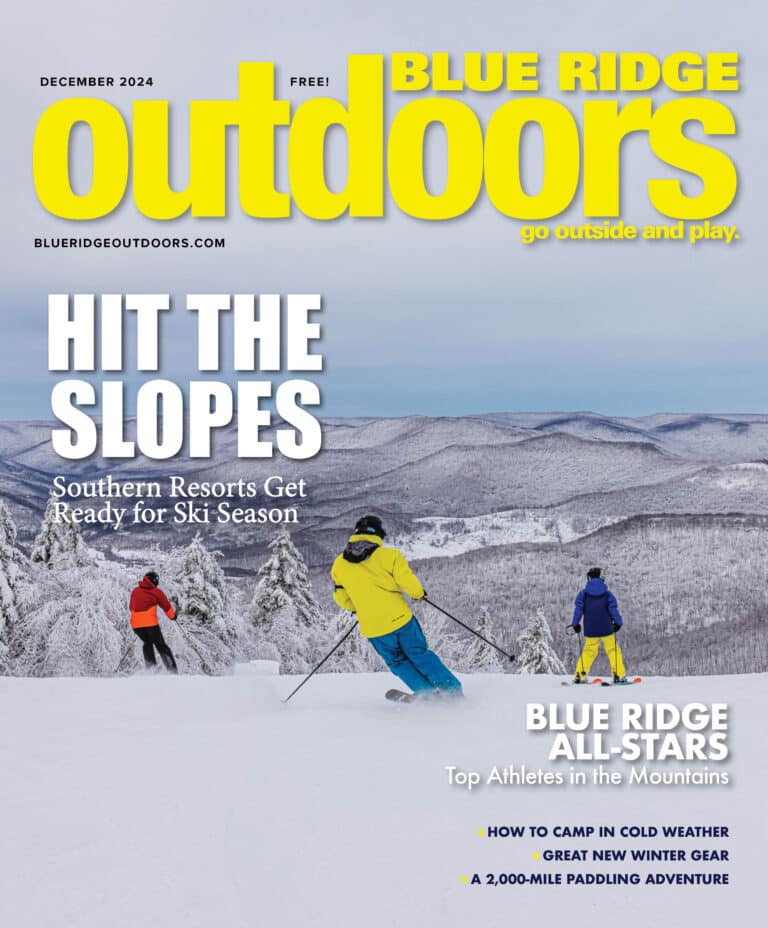A Novice Picker Gets a Fast Lesson in Mountain Music
It sounded like a good idea at the time—Mountain Music School in Big Stone Gap, Va. As a long-time fan of the high lonesome sound, I figured nothing could be better than a week of intensive study in old-time music, coupled with jam sessions, performances, and a student recital at the end of the week. “This will be a blast,” I told myself and my 10-year-old son, John Patrick, as I signed us up.
And it was….until Recital Day. As my performance approached, the bravado I felt during our three-hour classes was gone. The standard instrumental we would be playing, a collection of some 20 notes I had been dutifully mastering all week, had become a mystifying labyrinth on the fret board. My dexterity was fleeting, my fingers unresponsive to the desperate pleadings of my brain: “Please! Third fret! Fourth string!” A frantic review as we ended our last morning practice left me less than confident—especially as I listened to my young son pick the tune out seamlessly.
Then we were heading towards the stage, and I was second-guessing how good this idea really was.
![IMG_0516[4]_FIX copy](https://www.blueridgeoutdoors.com/BRO_DEV/wp-content/uploads/2010/09/IMG_05164_FIX-copy-300x200.jpg) Started some six years ago, the Mountain Music School at Mountain Empire Community College is celebrated for its dedication to preserving the rich musical heritage of the Appalachians. The program provides musically inclined kids of all ages—this year’s youngest student was 8, while the oldest topped 70—the opportunity to learn, and carry on, the beloved sounds of these mountains.
Started some six years ago, the Mountain Music School at Mountain Empire Community College is celebrated for its dedication to preserving the rich musical heritage of the Appalachians. The program provides musically inclined kids of all ages—this year’s youngest student was 8, while the oldest topped 70—the opportunity to learn, and carry on, the beloved sounds of these mountains.
From its inception, the program filled a glaring hole in the community. “There just weren’t any music schools like this in our area,” says program director Sue Ella Boatright-Wells. “We wanted to fill that void and offer students the chance to study old-time music.”
And the program is working. Long-time Southwest Virginia musician Ron Short, also a driving force behind the success of Mountain Music School, made note of the dearth of young fiddle players in, of all places, the Appalachian Mountains. “There was a time,” said Short, “when I couldn’t find a young fiddle player.”
The largest class during this year’s Mountain Music School? Advanced fiddlers.
The success of Mountain Music School is certainly attributed to the strength and passion of the program’s instructors. Teaching courses were some of the strongest musicians in Southwest Virginia, including Audey Ratliff, a mandolin maker of the highest degree, and Todd Meade, a fiddling prodigy who toured with Ralph Stanley & The Clinch Mountain Boys when he was just 18.
My advanced guitar class was taught by Chris Rose, a longtime metal-head with an encyclopedic knowledge of the guitar. While Rose appeased students (including my metal-minded son) in our class with Metallica riffs, his understanding of mountain blues, old time, and bluegrass was astounding. A veteran of more than 20 years of teaching guitar, Rose exuded a contagious enthusiasm, which was helpful when Wednesday morning came and my fingertips, which felt like they had been put through a sausage press, didn’t want to play any more notes.
In the end, the entire student performance went off without a hitch. Each group, from the cadre of novice fiddlers to the most experienced banjo players, performed admirably. Despite the rising panic I felt as I walked onstage and a few fumbles and semi-desperate glances at my teenage bandmates, I made it through our songs with my pride in hand and was able to leave the stage content.
Truth be told, I was stoked, a sentiment I shared with the rest of the students and one completely understood by Boatright-Wells.
“Mountain Music School brings a real excitement to this music,” she said. “Our kids are even going out and performing now with their own bands. We are showing them that it’s still cool to play mountain music.”
Ready to pick?
Reserve your spot at mountainmusicschool.org for next summer’s Mountain Music School.







